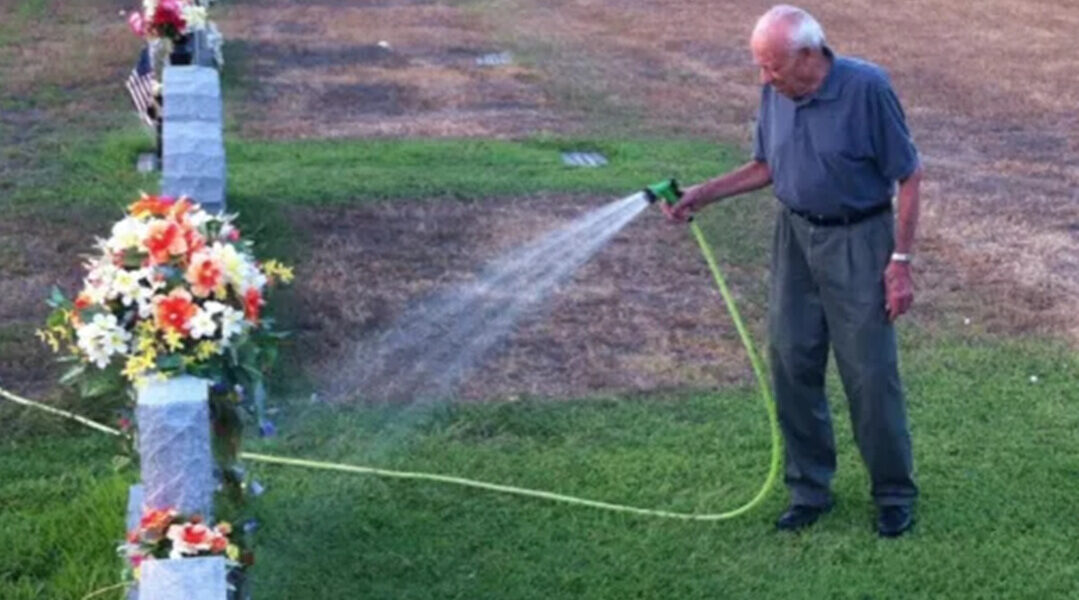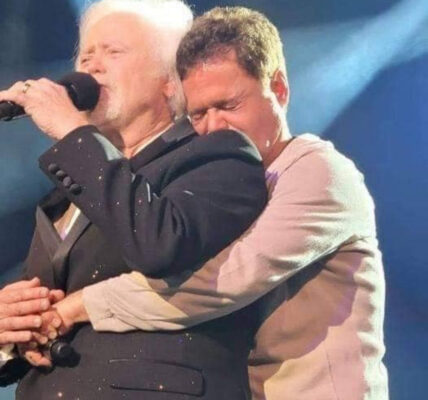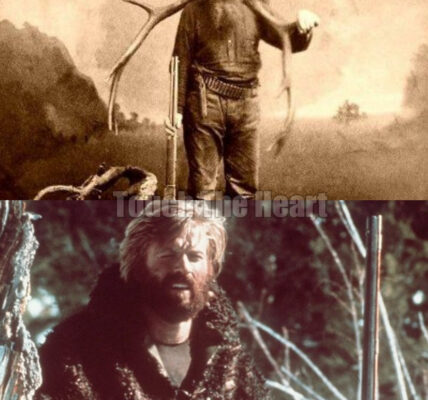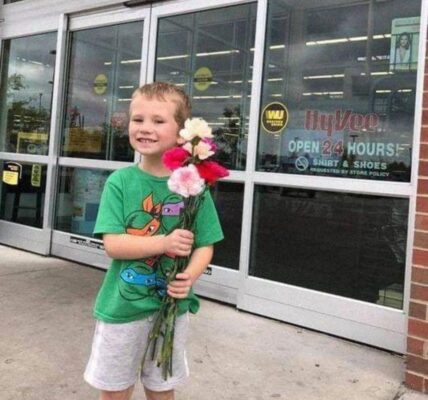
Every morning begins the same for 86-year-old Jake Reissig. He wakes with purpose, not just to live another day, but to honor the love of his life. His routine has become sacred: first, a stop at church to ground himself in faith; then coffee with one of his nine children, a ritual that keeps family close. But the heart of his day begins when he returns home to his rose garden.
There, Jake selects a single rose — carefully clipped, lovingly chosen. For the past year and a half, he has walked this same path, carrying a flower to the grave of his wife, Elizabeth, his partner of 65 years. The roses are his way of saying, I still love you. I still remember. I’m still here.
This summer in Texas, the drought turned cemeteries into parched landscapes. The grass withered, the earth cracked. Jake could not bear to see the ground around his wife’s resting place so dry, so lifeless. So he added another step to his ritual: watering the grass around her grave. Day after day, he came not only with a rose, but with a watering can, bringing life back to the soil where her memory rests.
One day, while tending to Elizabeth’s grave, Jake noticed a woman nearby. She was kneeling, her body trembling with grief, her tears falling onto the hard, dry ground. Jake approached her gently, asking if she was all right. Through sobs, she explained that her brother, Joseph Villasenor, had served in the Air Force but had passed away in 2010. She missed him dearly.
Jake listened, and something stirred deep inside him. He knew the pain of loss, the weight of absence. And he decided, in that moment, to do something about it.
From then on, Jake didn’t just water his wife’s grave. He began watering Joseph’s as well. It wasn’t a duty. It wasn’t an obligation. It was love — the kind of respect that flows naturally from one human heart to another.
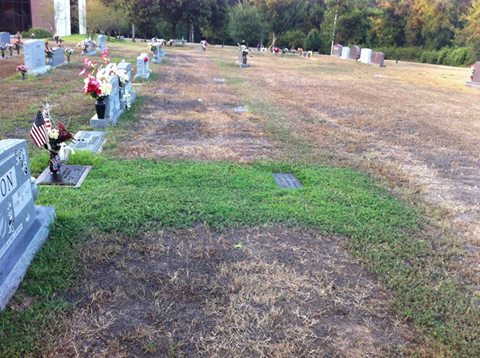
Weeks later, when Joseph’s family returned to visit his grave, they couldn’t believe their eyes. Unlike the surrounding dry patches, Joseph’s gravesite was lush, green, and vibrant. Grass that should have been brown was alive, cared for, tended with compassion. At first, they thought it must be some mistake. Then they learned the truth.
It was Jake. A man they had never met. An old widower who had taken it upon himself to honor their fallen hero, one watering can at a time.
When asked why he did it, Jake’s answer was simple. “Joe isn’t a stranger. I talk to him every day while I water the grass.”
What some might call a small gesture was, in truth, extraordinary. It was more than watering grass — it was nourishing memory, preserving dignity, and showing that love doesn’t stop at bloodlines or family ties. It reaches further, reminding us of the respect we owe each other as human beings.

Jake’s story is about roses and water, yes. But more than that, it’s about character. It’s about the kind of “old school” respect that seems too rare these days — the quiet belief that you honor those you’ve lost by how you live, and you honor strangers by treating them as neighbors.
In a world often rushing past grief, Jake has slowed down. With his daily visits, he shows us that remembrance is not about grand gestures, but about consistency. Love is not just a feeling; it’s an action. Respect is not a word; it’s a choice.
And so, every morning, Jake continues. A rose for his Elizabeth. Water for her grave. And a gift of life and remembrance for Joseph — a man he never knew, but now calls a friend.
Thumbs up to Jake, not just for what he does, but for who he is: a man of honor, a quiet hero, and a reminder of the goodness we still need in this world.
